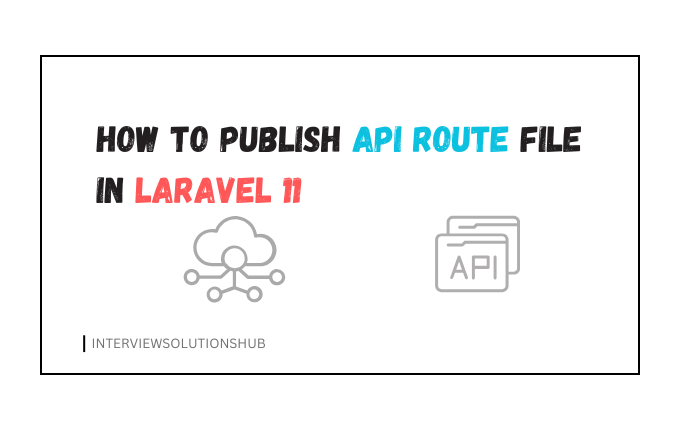Simplify Image Uploads in Laravel
Read More

.png)
PostgreSQL and MySQL are two of the most popular open-source relational database management systems (RDBMSs) available today. Both (PostgreSQL vs MySQL) databases are widely used in a variety of applications, from small personal websites to large enterprise systems.
When choosing a database for your project, it is important to consider your specific needs and requirements. PostgreSQL and MySQL have different strengths and weaknesses, so it is important to compare the two databases before making a decision.
In this guide, we will take a comprehensive look at MySQL vs PostgreSQL , comparing and contrasting the two databases on a variety of factors, including:
PostgreSQL is an object-relational database, which means that it supports features such as inheritance and polymorphism. MySQL is a purely relational database, which does not support these features.
PostgreSQL also offers a wider range of data types than MySQL, and it supports more advanced SQL features. For example, PostgreSQL supports window functions and subqueries in the WHERE clause.
The performance of PostgreSQL and MySQL is generally comparable. However, PostgreSQL may outperform MySQL for complex queries and workloads with a high volume of write operations.
Both PostgreSQL and MySQL are highly scalable databases. They can be deployed on a wide range of hardware platforms, from small servers to large clusters.
Both PostgreSQL and MySQL offer a variety of security features, such as user authentication, authorization, and encryption. However, PostgreSQL is generally considered to be more secure than MySQL. This is because PostgreSQL has a longer history of security development and it offers a wider range of security features.
MySQL is generally considered to be easier to use than PostgreSQL. This is because MySQL has a simpler syntax and it is easier to install and configure.
Both PostgreSQL and MySQL have large and active communities. This means that there are a wealth of resources available to help you learn and use these databases.
Here are some examples of how PostgreSQL and MySQL are used in different applications:
The best database for your project depends on your specific needs and requirements. If you need a database with advanced features, such as object-relational support and advanced SQL features, then PostgreSQL is a good choice. If you need a database that is easy to use and has a large community, then MySQL is a good choice.
Here is a table that summarizes the key differences between PostgreSQL and MySQL:
| Feature | PostgreSQL | MySQL |
|---|---|---|
| Database type | Object-relational | Relational |
| Data types | Wide range | Limited range |
| SQL features | Advanced | Basic |
| Performance | Comparable | Comparable |
| Scalability | High | High |
| Security | High | Good |
| Ease of use | Good | Excellent |
| Community support | Excellent | Excellent |
Here are some query examples in PostgreSQL and MySQL:
PostgreSQL:
-- Select all rows from the `customers` table
SELECT * FROM customers;
-- Select the names of all customers who have lived in the United States for more than 10 years
SELECT name FROM customers WHERE country = 'US' AND tenure > 10;
-- Select the total sales for each product category
SELECT category, SUM(sales) AS total_sales FROM orders GROUP BY category;
-- Update the customer email address for a customer with the ID 1234
UPDATE customers SET email = '[email protected]' WHERE id = 1234;
-- Delete a customer with the ID 1234
DELETE FROM customers WHERE id = 1234;
MySQL:
-- Select all rows from the `customers` table
SELECT * FROM customers;
-- Select the names of all customers who have lived in the United States for more than 10 years
SELECT name FROM customers WHERE country = 'US' AND tenure > 10;
-- Select the total sales for each product category
SELECT category, SUM(sales) AS total_sales FROM orders GROUP BY category;
-- Update the customer email address for a customer with the ID 1234
UPDATE customers SET email = '[email protected]' WHERE id = 1234;
-- Delete a customer with the ID 1234
DELETE FROM customers WHERE id = 1234;
As you can see, the syntax for PostgreSQL and MySQL queries is very similar. However, there are some minor differences. For example, PostgreSQL uses double quotes to delimit identifiers, while MySQL uses single quotes.
Also, PostgreSQL supports some advanced SQL features that are not available in MySQL, such as window functions and subqueries in the WHERE clause.
-- Select the names of all customers who have made a purchase in the last month and whose total spending is greater than $100
SELECT name FROM customers
INNER JOIN orders ON customers.id = orders.customer_id
WHERE order_date >= CURRENT_DATE - INTERVAL 1 MONTH
AND SUM(total) > 100;
This query uses a join to combine the customers and orders tables. The WHERE clause then filters the results to only include customers who have made a purchase in the last month and whose total spending is greater than $100.
-- Select the names of all customers who have made a purchase in the last month and whose total spending is greater than $100
SELECT name FROM customers
INNER JOIN orders ON customers.id = orders.customer_id
WHERE order_date >= DATE_SUB(NOW(), INTERVAL 1 MONTH)
AND SUM(total) > 100;
This query is similar to the PostgreSQL query above, but it uses the DATE_SUB() function to calculate the start date of the last month.
I hope these examples help to illustrate the differences between PostgreSQL and MySQL queries.
Both PostgreSQL and MySQL (MySQL vs PostgreSQL) are excellent relational database management systems. The best database for your project depends on your specific needs and requirements.
Recent posts form our Blog


.png)
.png)
.png)

0 Comments
Like 0